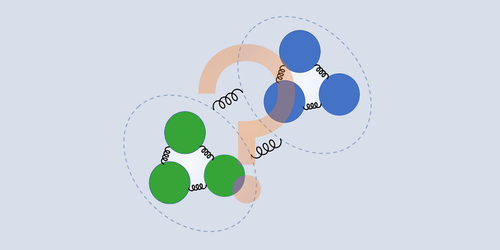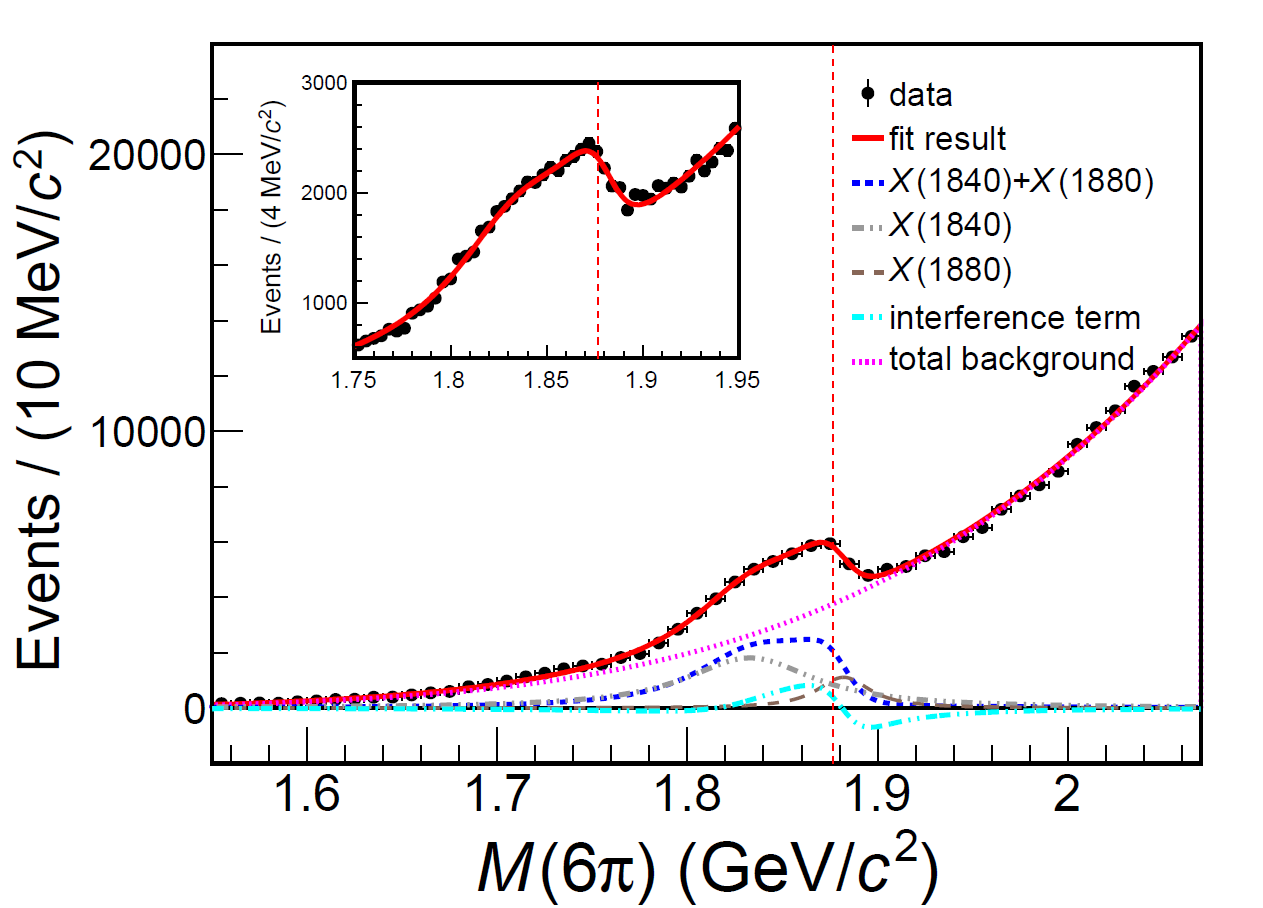The BESIII collaboration recently reported the observation of an anomalous line shape around ppbar mass threshold in the J/ψ→γ3(π+π-) decay, which indicates the existence of a ppbar bound state. This paper has been published online in Physical Review Letters on April 9, 2024. [Phys. Rev. Lett. 132,151904 (2024)]
Fig. 1: A portrait of nucleon-antinucleon bound state
The proximity in mass to 2mp is suggestive of nucleon-antinucleon bound states, an idea that has a long history. Before the birth of Quark Model, a nucleon-antinucleon bound state was already proposed by Prof. E. Fermi and Prof. C. N. Yang. There is an accumulation of evidence for anomalous behavior in the proton-antiproton system near the ppbar mass threshold, e.g., J/ψ→γppabr , J/ψ→γπ+π-η' and the proton’s effective form factor determined from e+e-→ppbar, exhibiting a narrow peak or a very steep falloff around the ppbar mass threshold, which inspired many speculations and renewed the interests on the nucleon-antinucleon bound state.
X(1840) is a new structure discovered in the J/ψ→γ3(π+π-) process in 2013 with subdata sample of BESIII experiment, which is also located near the ppbar mass threshold. A further exploration of line shape of X(1840) is essential to have a better understanding of its nature. Therefore, the BESIII experiment performed an investigation on the 3(π+π-) mass spectrum with 10 billion J/ψ events, which is about 45 times larger than the subdata sample used in the previous measurement.
An anomalous line shape of X(1840) near the ppbar mass threshold is observed for the first time. After many attempts, it is found that the model with a coherent sum of two Breit-Wigner parameterizations can provide a good description of data, which reveals a new resonance X(1880) with a statistical significance greater than 10σ, and the mass and width are determined to be 1882.1±1.7±0.7 MeV/c
2 and 30.7±5.5±2.4 MeV/c, respectively. The proximity of its mass to the ppbar mass threshold supports the existence of a ppbar bound state. After publication, this result is selected as “Featured in Physics” by Phys. Rev. Lett. and reported with a news titled “Evidence of a new subatomic particle” by Physics Magazine.
Fig. 2: The anomalous line shape of the resonant structure around ppbar mass threshold in 3(π+π-) mass spectrum
Further readings:The PRL publication:
https://journals.aps.org/prl/abstract/10.1103/PhysRevLett.132.151901Physics Magazine:
https://physics.aps.org/articles/v17/s37



